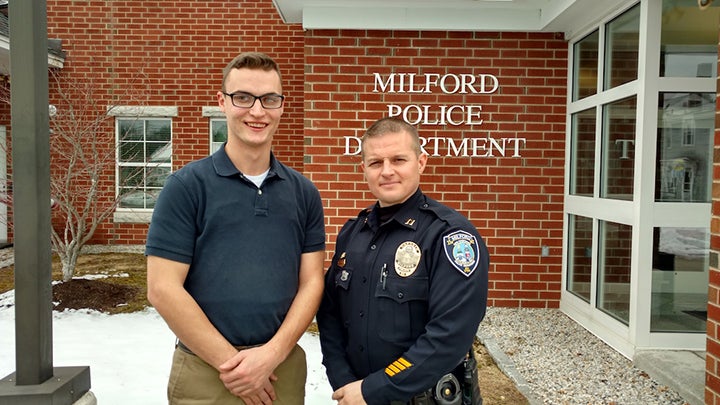
KINGSTON, R.I. – February 17, 2017 – The University of Rhode Island will launch a new interdisciplinary major in Criminology and Criminal Justice in the fall of 2017.
The new bachelor of arts degree in Criminology and Criminal Justice, approved last summer by the state Board of Education, is the University’s response to growing student demand for a program that prepares undergraduates for careers in corrections, law enforcement, federal agency work, probation and parole, victims’ assistance, law, research and social services, among many others.
Since 2006, hundreds of URI students have earned bachelor’s degrees in applied sociology with a focus on criminology and criminal justice.
“We have 300 majors in the applied sociology track right now,” said Associate Professor of Sociology Jill K. Doerner, interim director of the new program. “We have offered the courses for many years in several departments, but there was a push by faculty and students for a named major.”
Doerner, whose research examines sentencing disparities across gender, race/ethnicity and age, said URI will now benefit from listing a criminology/criminal justice major on the Common Application, which gives students the opportunity to apply to hundreds of universities through one application.
Freshmen entering URI in the fall can enroll directly in the new major, while those already enrolled at URI can finish their bachelor’s degree in applied sociology, or switch into the new program if it makes sense, and is feasible, for them.
The new degree combines courses from six departments: sociology, political science, psychology, gender and women’s studies, economics and chemistry. These departments will offer courses in sociology, law and the legal system, behavioral psychology, human trafficking, and forensics/criminalistics to help students tailor their major to their areas of interest.
“An interdisciplinary program makes so much sense,” Doerner said. “If you look at the entirety of the criminal justice system, there are distinct parts like law enforcement, the judiciary, corrections, social work, victims’ assistance, prosecution and defense and yet they all must work together. So, yes we want the student who is interested in becoming a police officer or FBI agent, but we also want the student who is interested in victims’ advocacy, counseling and rehabilitation, prison literacy programs, prison sentencing and support systems for those released from correctional systems.”
As part of the new major, three new faculty members will start in fall 2017, two assigned to the new program and one to political science.
Doerner said she and Sociology Professor Leo Carroll, whose expertise is in policing, punishment and corrections and criminal justice policy, began putting the new program together three years ago.
“We developed the applied sociology program 10 years ago because such a large number of our sociology students were interested in criminology and criminal justice,” Carroll said. “The aim of that program was to capitalize on their interests to provide them with a solid and well-rounded liberal arts education that will prepare them for any number of career opportunities both within and outside the criminal justice system. The new program retains that goal and will actually be more interdisciplinary than its predecessor.”
Students must earn 30 credits in the major as part of the 120 credits needed to graduate.
Mary Powers, a senior from Warren who is enrolled in the applied bachelor of science degree program in criminology and criminal justice, said she is well prepared to pursue her career as a police officer who works with canines.
“I have taken outstanding courses with great faculty, but the new major will provide a more focused approach,” said Powers, who completed an internship with the Rhode Island State Police last semester and now works with the Probation and Parole division of the Rhode Island Department of Corrections. During the summer, she worked at the Warren Police Department and completed the URI Police Department’s first Citizens Police Academy.
Senior Jason Bender of Amherst, N.H. is finishing his applied sociology degree in criminology and earning a bachelor’s degree in history.
“I am glad that URI is strengthening its criminal justice focus, but it should retain its strength in criminology because that helps us understand the theory, why crimes happen, what causes individuals to deviate. Studying social inequality is a great base of study for someone who wants to go into law enforcement,” said the former intern with the Milford, N.H. Police Department, who will enter the Marine Corps. as a second lieutenant after graduation in May and then pursue a career in law enforcement.
(Editor’s note: Criminology is the study of crime as a social phenomenon, while criminalistics is the application of scientific techniques to the collection and analysis of evidence. Criminal justice consists of the systems and institutions established by governments to maintain social control, deter crime and sanction those who violate the law.)

